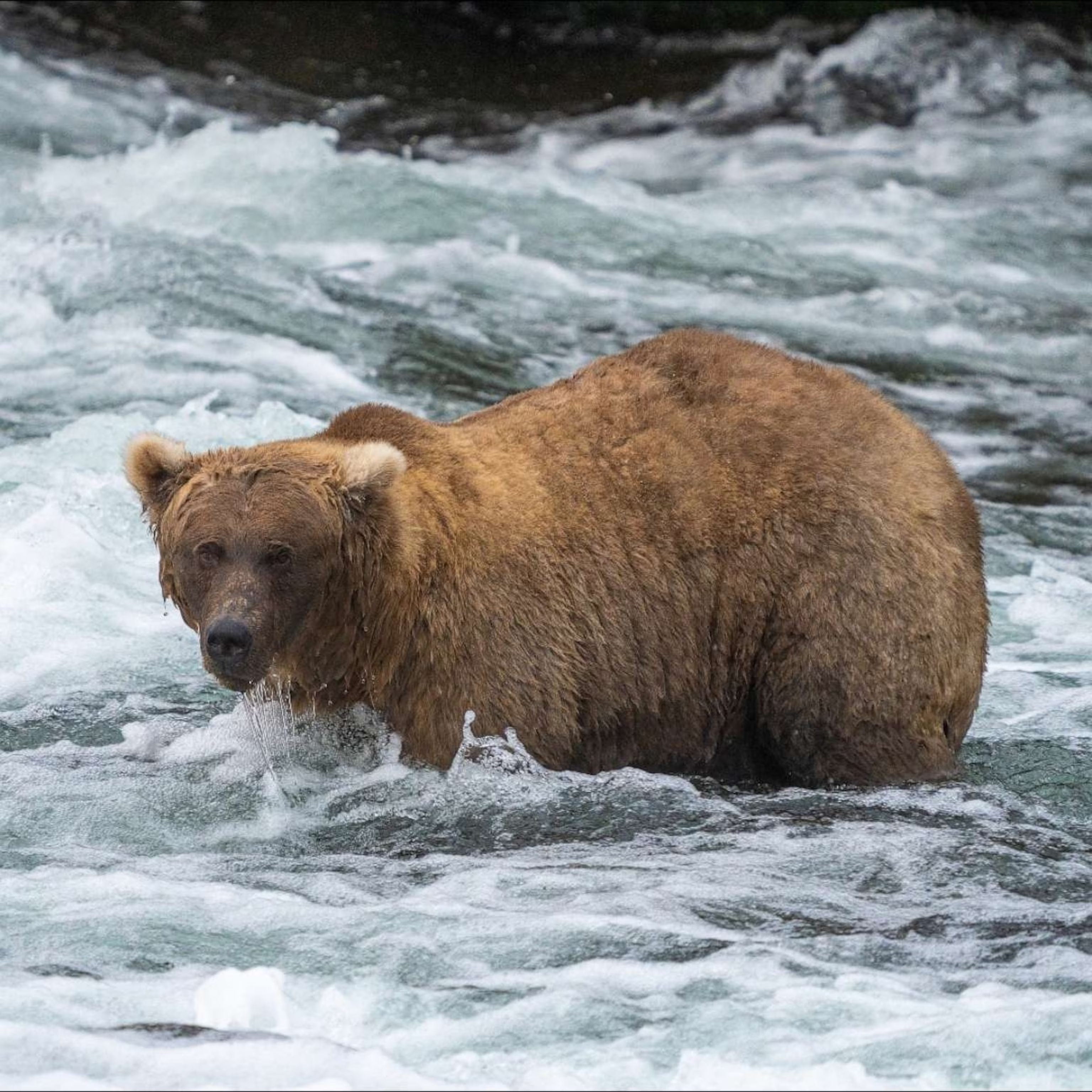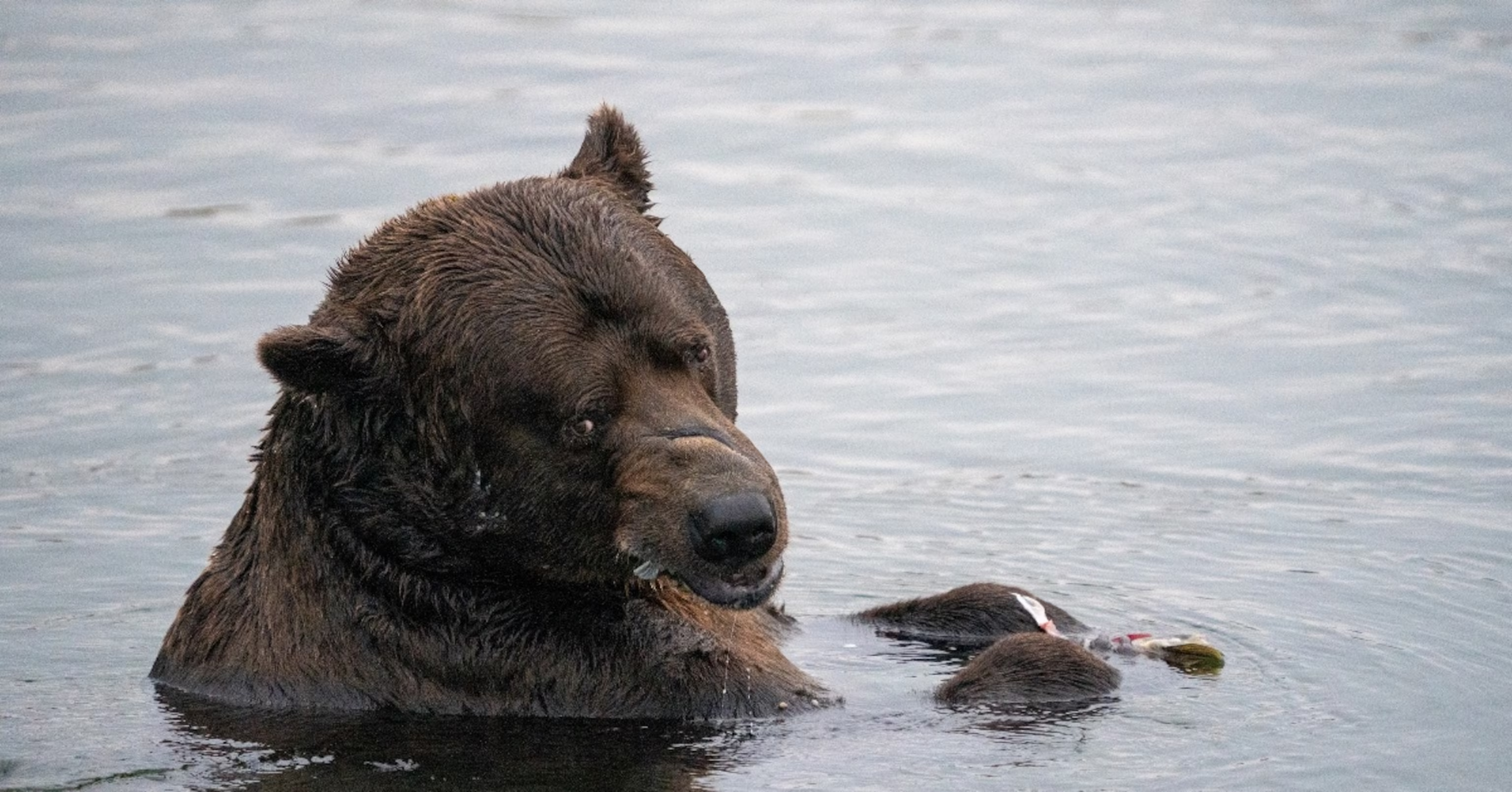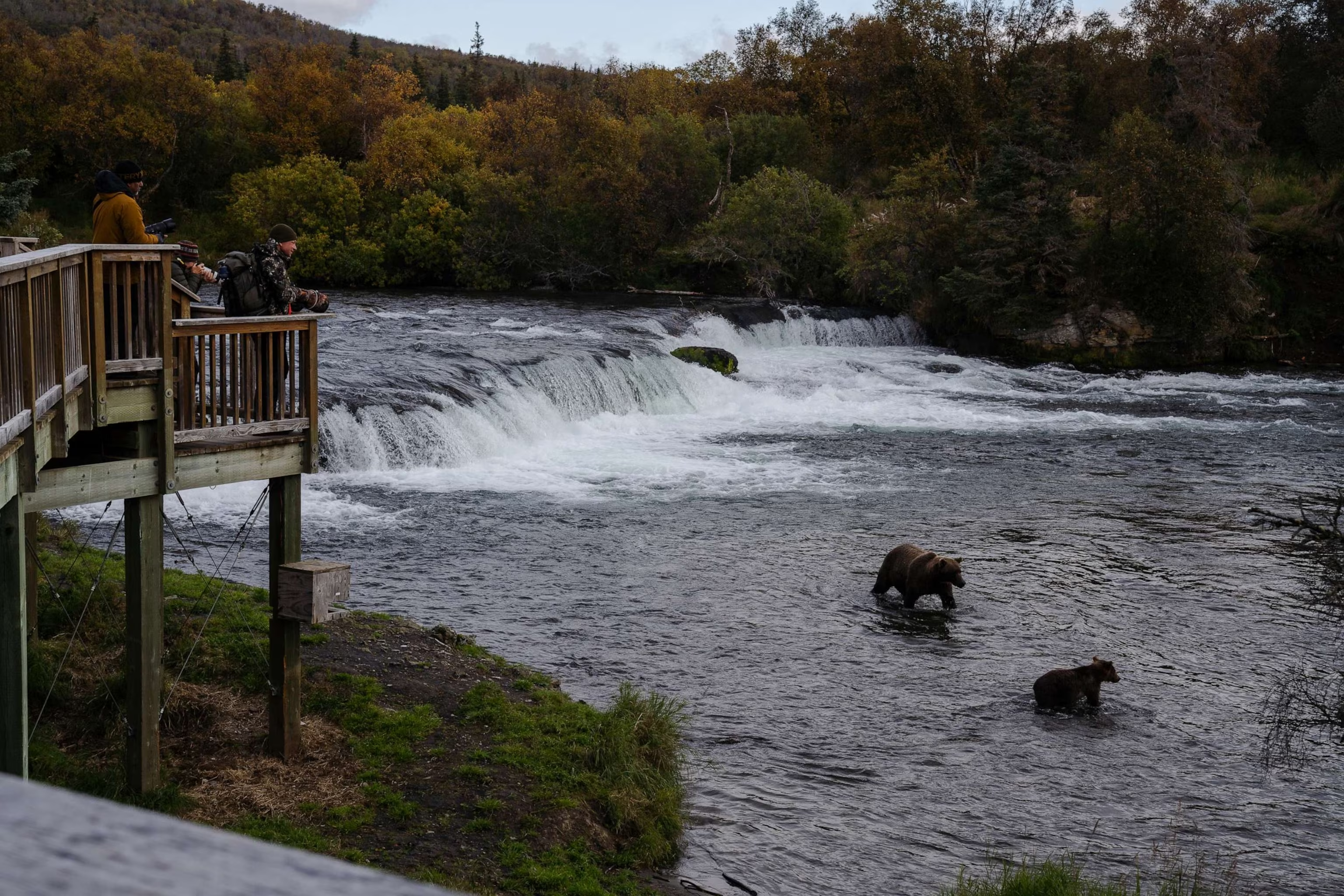How a newly single mama bear was able to eat enough to win Fat Bear Week
Make sure to hide your salmon and berries from the newly named winner of the ninth-annual Fat Bear Week competition.
A "fierce queen" named "128 Grazer" has been crowned the fattest bear of all of Katmai National Park in Alaska.
MORE: 'Fat is fit': Alaska's Katmai National Park gears up for annual Fat Bear Week
Grazer, a mama bear to two litters of cubs, has been a fixture of the park since 2005, when she was first identified as a cub herself, according to Explore.org, which facilitates the competition.
This was Grazer's first time winning the contest, a feat made easier by the fact that she entered as a single female with no cubs to care for, Felicia Jimenez, a media ranger at Katmai National Park, told ABC News.

Since last year, Grazer has since released her cubs and was able to focus on self-care, Jimenez said.
When females are caring for cubs, they are often nursing them, helping them forage for salmon and providing them protection -- all of which detracts from their ability to eat as much as possible, Jimenez said.
"She was able to focus on herself," Jimenez said of Grazer. "She had an advantage over other female bears this year."
MORE: Could a government shutdown affect Fat Bear Week?
Cubs typically leave their mothers at about 2 and a half years old, but Grazer kept her cubs for a third summer, Jimenez said. That extra year of lessons and nourishment from mom will have benefitted the cubs.
In fact, one of the cubs, "Bear 428," was even entered into the competition at just 3 and a half years old, Jimenez said. However, that bear was knocked out in the first round.
On the last day of the contest, Grazer beat out her competition, "32 Chunk," a "large and dominant" male, Jimenez said.

Although Chunk is one of the largest males on the Brooks River, Grazer won by more than 85,000 votes.
Chunk has also participated in the competition many times, but has never made it to the finals, Jimenez said.
"This was a big matchup between two really big bears," she said.
MORE:'747' named winner of Fat Bear Week for 2nd time following ballot-stuffing attempt
While park rangers do not tag or weigh the bears, Grazer is estimated to weigh about 700 pounds, Jimenez said. When female bears emerge from the den, they typically weigh between 400 and 500 pounds.
The bears living along Alaska's Brooks River have spent the summer fattening up on salmon, berries and grasses in preparation for their annual winter hibernation, according to Katmai National Park.
The brown bears are now in prime shape to enter hibernation around November and eventually experience a one-third loss of their body weight through the winter season, according to park officials. They will begin to emerge from their dens around May.

The March Madness-style bracket competition has been pitting the fattest brown bears at Katmai National Park against each other since 2014.
When the contest first began, it consisted of just a single day in which a few of the park's most notoriously gargantuan bears competed with each other.
By the next year, the contest had transformed into a "globally recognized" event that required more days and more contenders.
This year, a record number of ballots -- more than 1.4 million -- were cast in the competition.
The popularity of Fat Bear Week allows park officials to direct attention to conservation efforts in the region, especially for the sockeye salmon run on the Brooks River, which the bears rely on for sustenance.
The health of the brown bears signifies the overall health of the local ecosystem and Bristol Bay watershed, according to the park.
"Without the ecosystem protected, there would be no Fat Bear Week," Jimenez said.
Disclaimer: The copyright of this article belongs to the original author. Reposting this article is solely for the purpose of information dissemination and does not constitute any investment advice. If there is any infringement, please contact us immediately. We will make corrections or deletions as necessary. Thank you.



